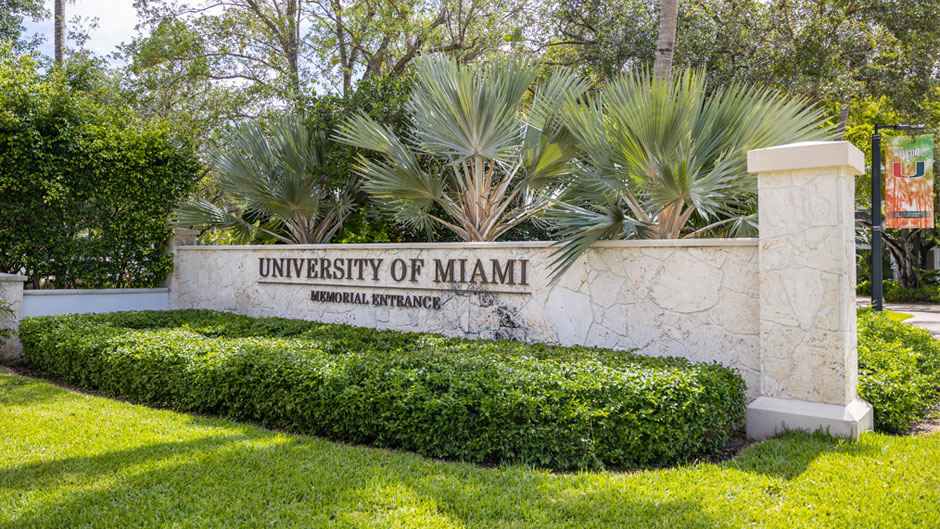In a world where we are constantly bombarded with ever-evolving challenges, an absence of new and current knowledge can be a severe detriment.
Imagine public health experts and health care personnel only using information and guidelines from 20 years ago to combat today’s global pandemic.
Thankfully, we have advanced in large part because of the contributions of institutions of higher education, including the University of Miami.
Having access to important shared knowledge is just one of the many ways higher education plays a fundamental role in society. Around the world, higher education institutions remain the greatest source of social mobility. June 6 is National Higher Education Day, aimed at encouraging students, educators, and families to tackle some of the issues of higher education head-on—such as the benefits of higher education on individuals and society, and how the formative years of a college experience shape students moving forward.
Jeffrey Duerk, executive vice president for academic affairs and provost, pointed out the historical importance and irreplaceable experience students receive by obtaining a college degree, both socially and intellectually.
“UM is a place where students are exposed to people from different cultures, different perspectives, and different ideas,” Duerk said. “The university promotes and fosters an environment of acceptance and understanding and gives students the opportunity to explore and challenge ideas that they may have come to campus with.”
Faculty and staff endorse 11 schools and colleges that provide a program for a wide range of individuals seeking to learn, research, and challenge themselves. From architecture, to Africana studies, to nursing, to the arts, the University supports a myriad of academic opportunity to be a productive member of society.
“The country continues to advance and it’s because of higher education,” Duerk said. “I really think that as you create more access to higher education, there is more opportunity for people to rise up the socioeconomic ladder.”
Christian Garcia, associate dean and executive director of the Toppel Career Center, said he is living proof of the transformative powers a college degree provides.
“I’m a product of being someone who has gotten multiple degrees,” said Garcia, a first-generation college graduate. “From a growth perspective alone—from getting to know about yourself, to experiencing other cultures, and learning where you fit in this world—I think it pays for itself.”
Another pragmatic aspect often debated is if higher education is a worthwhile investment. Garcia, an expert in local, national, and international career services, believes it is.
“There are many studies that have proven and shown from an economic perspective, that those who do complete a bachelor’s degree earn significantly more than those with just a high school diploma,” he said. “There is a major return on investment.”
Although the cost of a college education increases over time, so does the value. Higher education institutions continue to foster a breeding ground for scholars to develop, devise, and deliver solutions to the world’s most challenging issues.
The social role provided by universities is also key to the continued growth of an individual. Laura Kohn Wood, dean of the School of Education and Human Development said accessibility to higher education is imperative for all to engage in, or it will be hopelessly limited.
“Universities, especially research institutions like the University of Miami, are the place where knowledge is produced. If you have people producing knowledge that only represent a particular perspective or particular life experience, then it’s only going to represent that singular experience,” she said. “If the whole thing is in pursuit of the truth, then you have to have people from all different perspectives involved, using their own lenses.”
Higher education is one of the last few places where a person is forced to learn outside of their own bubble. As technology advances, the capability of tailoring our interactions to fit our desired wants and needs have become commonplace.
“We need academia to look and be representative of all different walks of life,” Kohn Wood said. “UM has created an environment for people to feel empowered to express those differences.”
Despite the countless challenges it may face, higher education remains one of the best places to contribute your knowledge and personal talents to—even if it may look different than it did, it will continue to be a space of possibility.
“There are so many different options for a student here,” Garcia said. “Whether it’s research, or a study abroad experience, or one of many internships, they have so many opportunities to tie what they are learning in the classroom to the real world here.”

